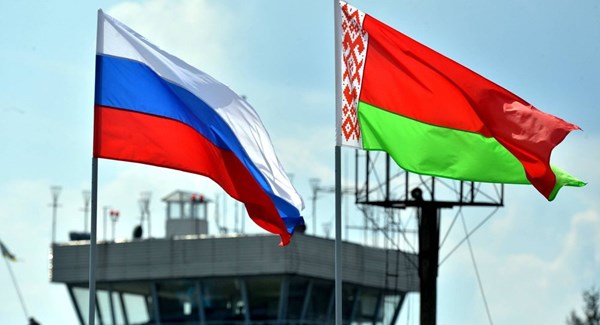Russia and Belarus one step away from oil war
Moscow and Minsk have been unable to agree on the terms under which Russian oil will be supplied to Belarusian refineries, and the deliveries could even stop at the start of the new year, Reuters reported, citing six sources in the industry.
On the morning of December 31, not a single ton of Russian oil was registered for Belarus, said two sources familiar with the registration of route instructions.
There have been numerous obstacles in the negotiations which Moscow links to the integration of the two countries. Apart from oil prices, points of disagreement include the tariff on transit to Europe, and the amount of compensation due to Belarus for a Russian tax maneuver which resulted in a sharp increase in the prices Belarusian refineries have to pay for Russian oil.
On Monday, Russian and Belarusian presidents Vladimir Putin and Alexander Lukashenko met for another round of negotiations, but without achieving any conclusive agreements.
The Belarusian state-owned company Belneftekhim estimates that Belarusian refineries lost $320 million in 2019 due to the Russian tax maneuver, and could lose a total of $5.8 billion between 2019 and 2024 if the price per barrel fluctuates around $60.
According to its export schedule, Belarus expects to receive 5.84 million tons of Russian oil between January and March. However, oil refineries in the country have already started operating at a lower capacity, and are preparing for a repeat of the oil wars of the 2000s, when Russia shut the valve not only for Minsk, but also for transit deliveries to the EU.
Reuters’ sources said that for the time being, nothing is threatening transit. Minsk has confirmed transit through the Druzhba pipeline, which has been transporting Russian oil to Europe since the late 1960s, and to this day accounts for one fifth of all Russia’s oil exports.
However, the situation could change. Belarus is considering the possibility of operating Druzhba in reverse, in order to pump American or Saudi oil to Belarus from Poland, Lukashenko said on December 24. As a result, the transit capacity would be reduced by two thirds.
“I have the three pipes of the Druzhba oil pipeline. I’ll take one in the first phase and supply our oil refineries. If it goes well, I’ll take a second pipe in reverse. One will remain. You supply 60-70 million tons to the premium western market. If I take two pipes, you’ll retain 20 million tons for transit, and not 60 million tons,” Lukashenko explained.
In response, Russian Energy Minister Alexander Novak said that “the options of closing the pipe are a force majeure, which is absolutely inexpedient”.
Belarus is demanding oil at Russia’s internal market prices. However, the Kremlin is linking these concessions to accelerated integration and the creation of a single state which, according to Bloomberg, is viewed as a way to keep Putin, who as already ruled for 20 years, in power.
However, the negotiations are snagging on key issues – the introduction of a single currency (with Minsk losing its own emission center), a single army and common organs of governance.
This being the case, Russia will not “run ahead and start subsidizing for Belarus that which we are currently not prepared to do while the matter of the union structure is not resolved” said Putin in December.
Russia pumps 24 million tons of oil per year to Belneftekhim. Of this, effectively 18 million tons is pumped through the southern line of Druzhba, and Moscow has undertaken to compensate Minsk for the export duties lost on account of the 6 million ton shortfall.
In 2019, the Russian government began the concluding stage of a tax maneuver in the oil sector which will gradually eliminate the export duties on oil and oil products, while simultaneously raising the mineral extraction tax between 2019 and 2024.
As part of the tax maneuver, the government initiated a new mechanism for subsidizing Russian oil refineries through a reverse excise on oil, which creates preferences for Russian refineries that are not available to Belarusian refineries.
